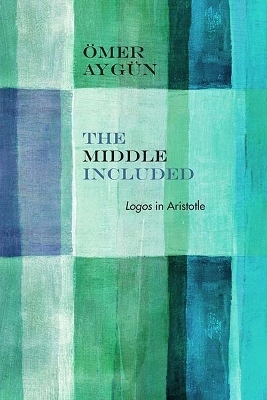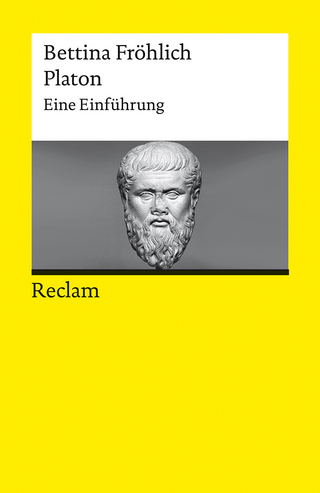
The Middle Included
Logos in Aristotle
Seiten
2016
Northwestern University Press (Verlag)
978-0-8101-3400-3 (ISBN)
Northwestern University Press (Verlag)
978-0-8101-3400-3 (ISBN)
Offers a systematic exploration of the meanings of logos throughout Aristotle’s work. This volume claims that the basic meaning is “gathering”, in the sense of a relation that holds its terms together without isolating them or collapsing one to the other. This basic meaning applies to logos in the sense of human language as well.
The Middle Included is a systematic exploration of the meanings of logos throughout Aristotle’s work. It claims that the basic meaning is “gathering,” in the sense of a relation that holds its terms together without isolating them or collapsing one to the other. This basic meaning applies to logos in the sense of human language as well. Aristotle describes how some animals are capable of understanding non-firsthand experience without being able to relay it, while others relay it without understanding its content. Aygu?n argues that what distinguishes human language, for Aristotle, is its ability to both understand and relay non-firsthand experiences along with firsthand ones. This ability is key to understanding the human condition: science, history, news media, education, propaganda, gossip, utopian fiction, and sophistry, as well as philosophy.Aristotle’s name for this peculiar but crucial human ability of “gathering” firsthand experience with non-firsthand experience, Ömer Aygu?n finds, is logos, and this leads to a claim about the specificity of human rationality and language.
The Middle Included is a systematic exploration of the meanings of logos throughout Aristotle’s work. It claims that the basic meaning is “gathering,” in the sense of a relation that holds its terms together without isolating them or collapsing one to the other. This basic meaning applies to logos in the sense of human language as well. Aristotle describes how some animals are capable of understanding non-firsthand experience without being able to relay it, while others relay it without understanding its content. Aygu?n argues that what distinguishes human language, for Aristotle, is its ability to both understand and relay non-firsthand experiences along with firsthand ones. This ability is key to understanding the human condition: science, history, news media, education, propaganda, gossip, utopian fiction, and sophistry, as well as philosophy.Aristotle’s name for this peculiar but crucial human ability of “gathering” firsthand experience with non-firsthand experience, Ömer Aygu?n finds, is logos, and this leads to a claim about the specificity of human rationality and language.
Ömer Aygün is an assistant professor of philosophy at Galatasaray University in Turkey.
| Erscheinungsdatum | 31.12.2016 |
|---|---|
| Reihe/Serie | Rereading Ancient Philosophy |
| Verlagsort | Evanston |
| Sprache | englisch |
| Maße | 152 x 229 mm |
| Gewicht | 400 g |
| Themenwelt | Geisteswissenschaften ► Philosophie ► Philosophie Altertum / Antike |
| Geisteswissenschaften ► Philosophie ► Sprachphilosophie | |
| ISBN-10 | 0-8101-3400-4 / 0810134004 |
| ISBN-13 | 978-0-8101-3400-3 / 9780810134003 |
| Zustand | Neuware |
| Haben Sie eine Frage zum Produkt? |


